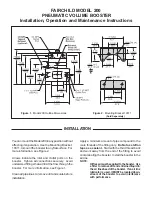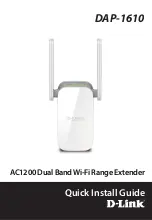
Introduction
The FDX-3500 consists of a transmitter and receiver
that extend KVM, DVI-D, audio and RS-232 signals. It is
a professional quality KVM capable of extending signals
up to 15 kilometers over a single singlemode fiber optic
cable.
Features
•
Top Signal Quality at Maximum Extension Over
Singlemode Fiber (15 km.)
•
Superior Image Quality at all Resolutions
•
Video Resolutions up to 1920 x 1200 at 60Hz (1280
x 1024 at 75Hz)
•
Customizable/Programmable DDC Table
•
Supports USB Keyboard/Mouse
•
Supports Stereo Audio
•
Supports DVI-D
•
Supports RS-232 Control from 300bps to 115,000bps
•
Supports all USB Keyboards Fully Transparent
•
Fiber Plug Type LC
•
Compatible With all Operating Systems
•
Compatible With all Major KVM Switches
•
Compact Metal Casing
Applications
•
Corporate or Educational Presentations
•
Financial (Remote Servers/User Control)
•
Call Centers
•
Industrial (Long-Range Workstation Isolation)
•
Information Terminals/Kiosks
•
Airport Installations (Air Traffic Control/Passenger
Information)
•
KVM Extension where Exceptional Quality of Signal
is Crucial
•
Medical (Remote Operation Away from Sensitive/
Magnetic Equipment)
•
Recording (for Large Studios where Editing/Mixing
Stations are Compact and/or Require Complete
Silence)
Installation
1.
Turn off the computer, display, and speakers.
2.
Connect the DVI extension cable, USB cable, and audio cable (not included) to the computer and to the ports on
the FDX-3500-TX.
3.
Connect the display to the DVI connector on the FDX-3500-RX.
4.
Connect USB mouse and keyboard ONLY to the USB connectors on the FDX-3500-RX.
5.
Connect speakers to the audio connector on the FDX-3500-RX.
6.
Connect the power cord and power on the FDX-3500TX and the FDX-3500-RX.
7.
Power on the computer, display and speakers.
Receiver
Transmitter
Fiber Optic Cable up to 1,400 ft.
Product - Installation Diagram
Why Fiber Optic?
SmartAVI has created a full line of fiber optic
extender products, understanding that this
technology is superior to traditional cabling.
Fiber optic cables are:
•
capable of transmitting over very long
distances with no signal loss.
•
immune to electromagnetic interference.
In situations where there is considerable
interference, fiber optic cabling is the only
solution.
•
much more secure because they cannot be
easily tapped. For this reason, military and
law enforcement agencies use fiber optic
cables for the transmission of sensitive data.
•
relatively inexpensive and small enough to
be routed through small spaces.




















